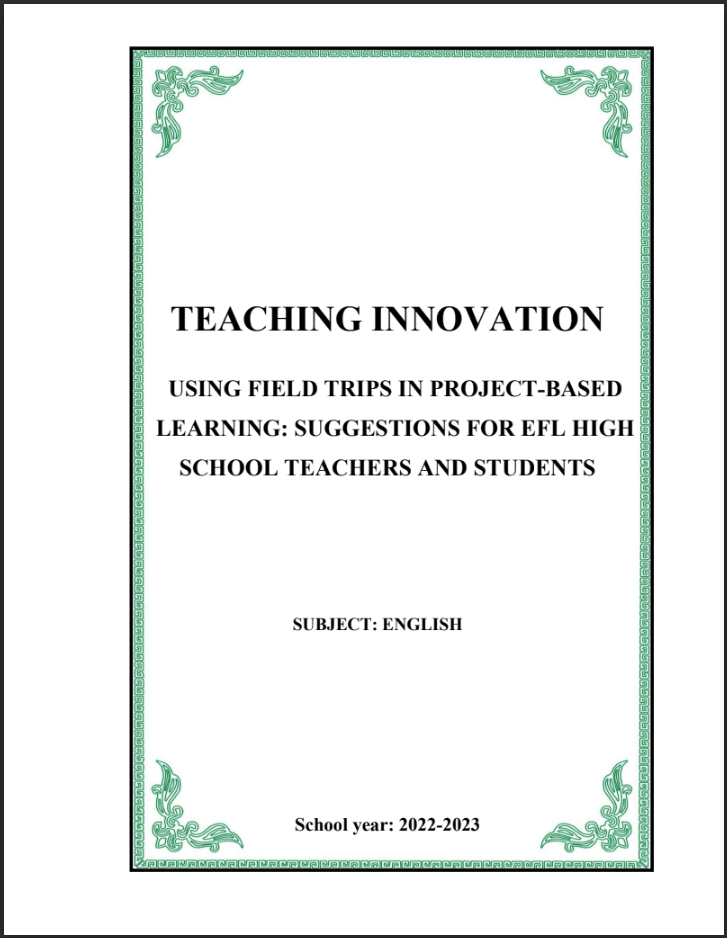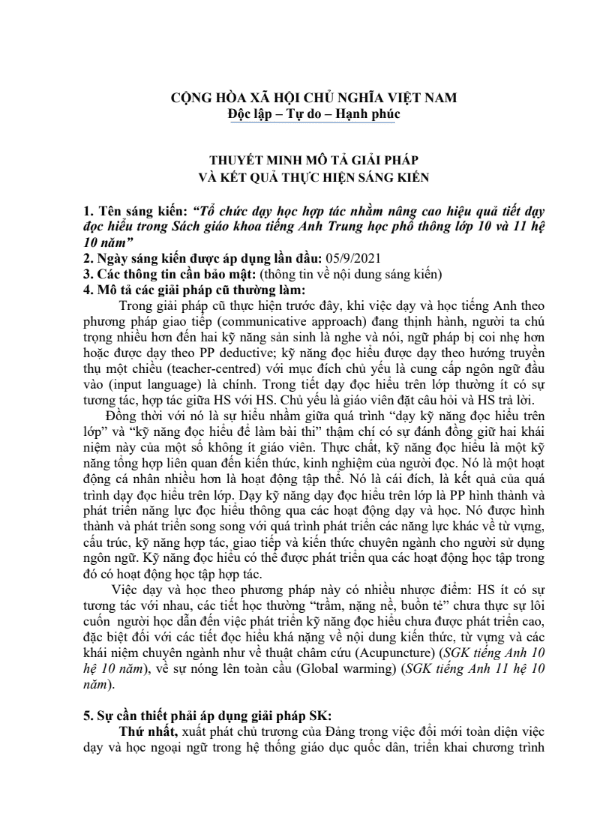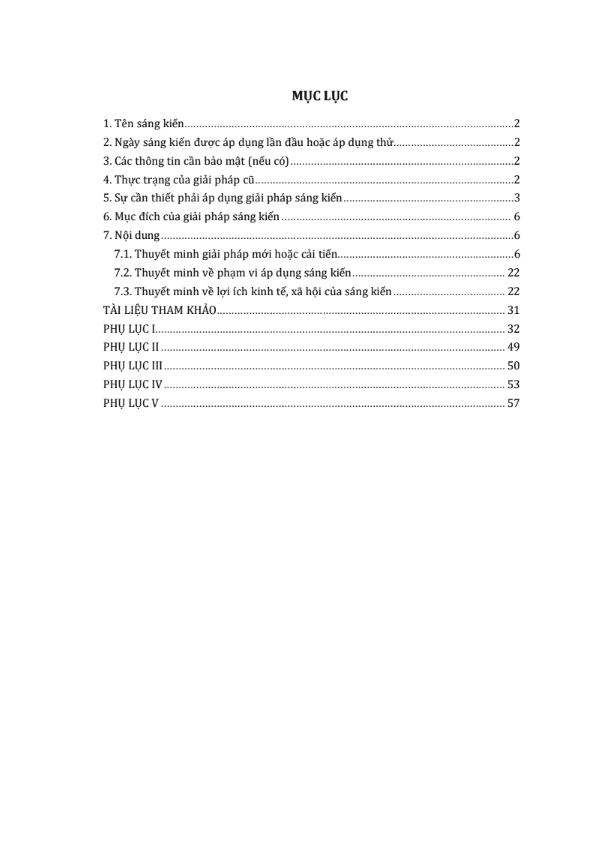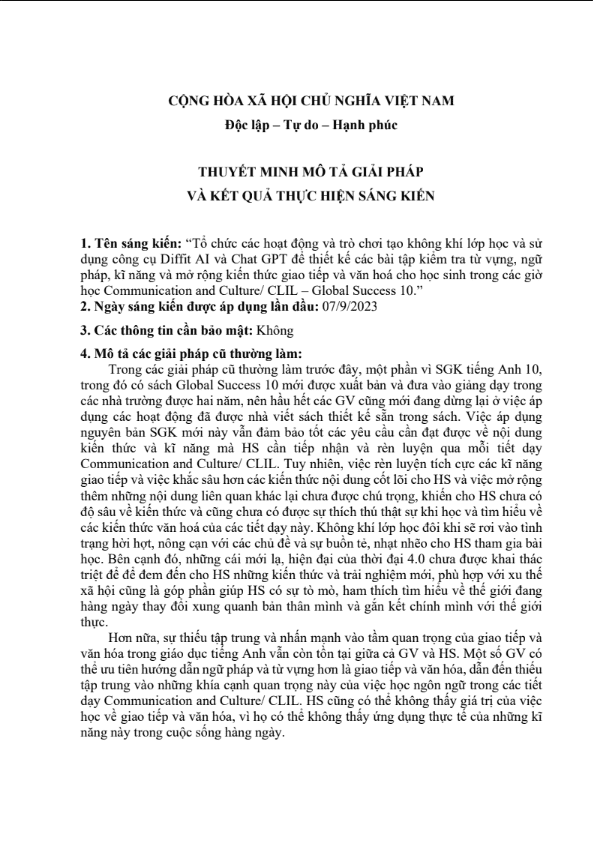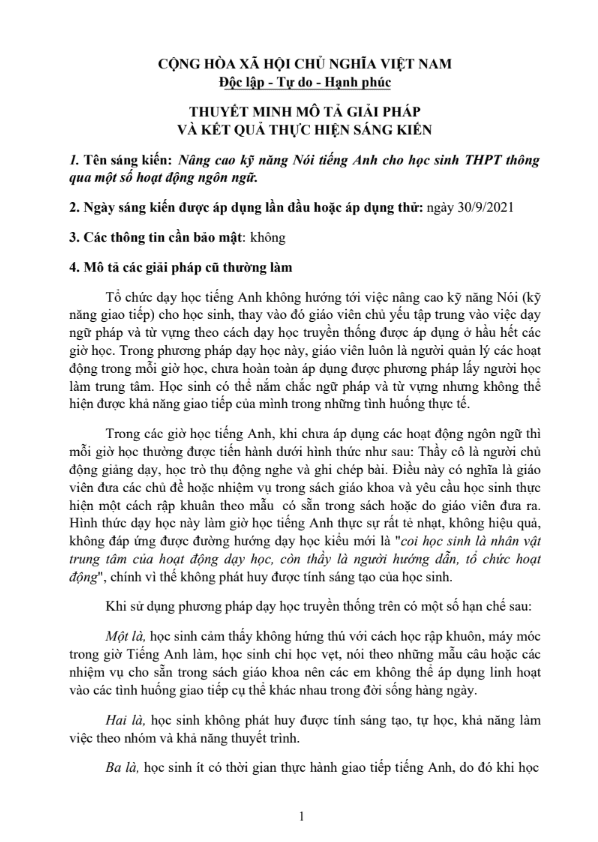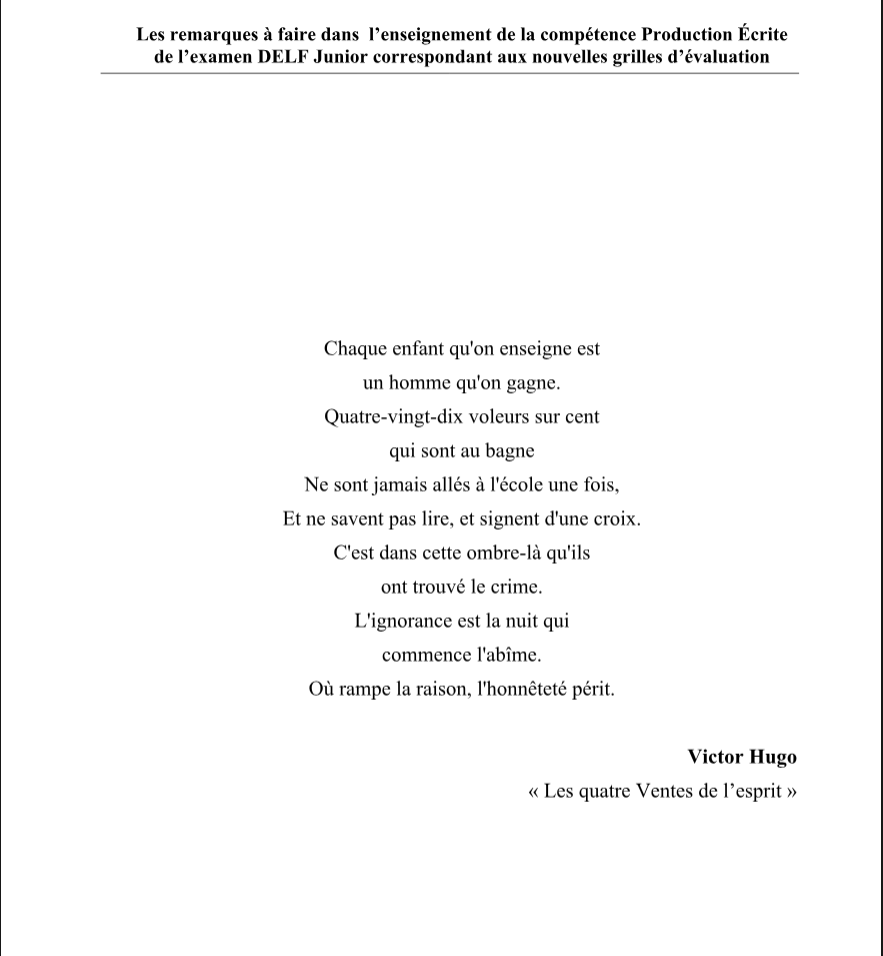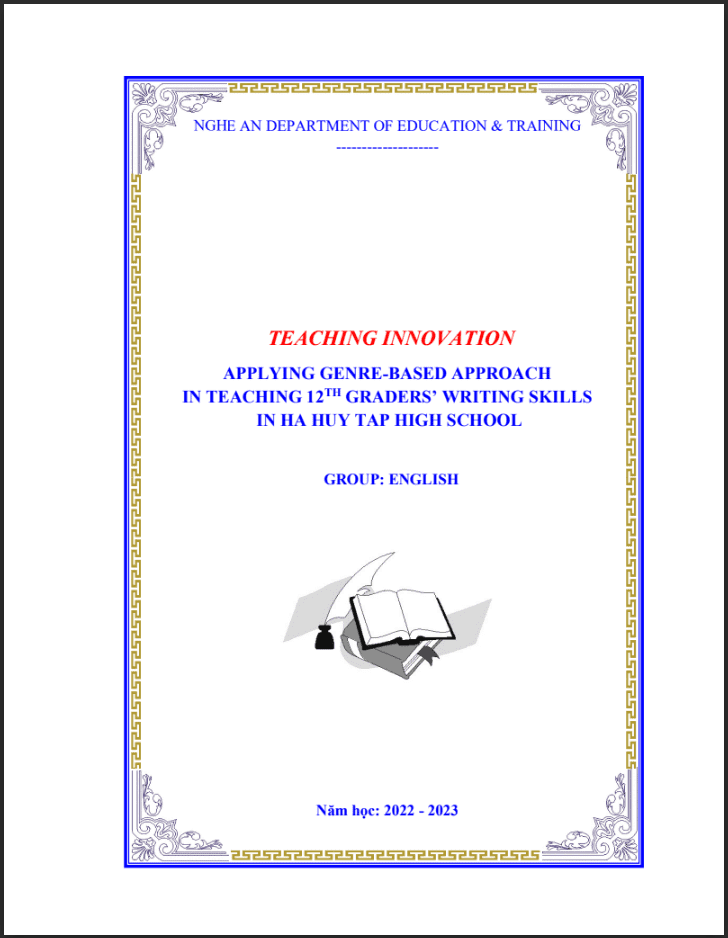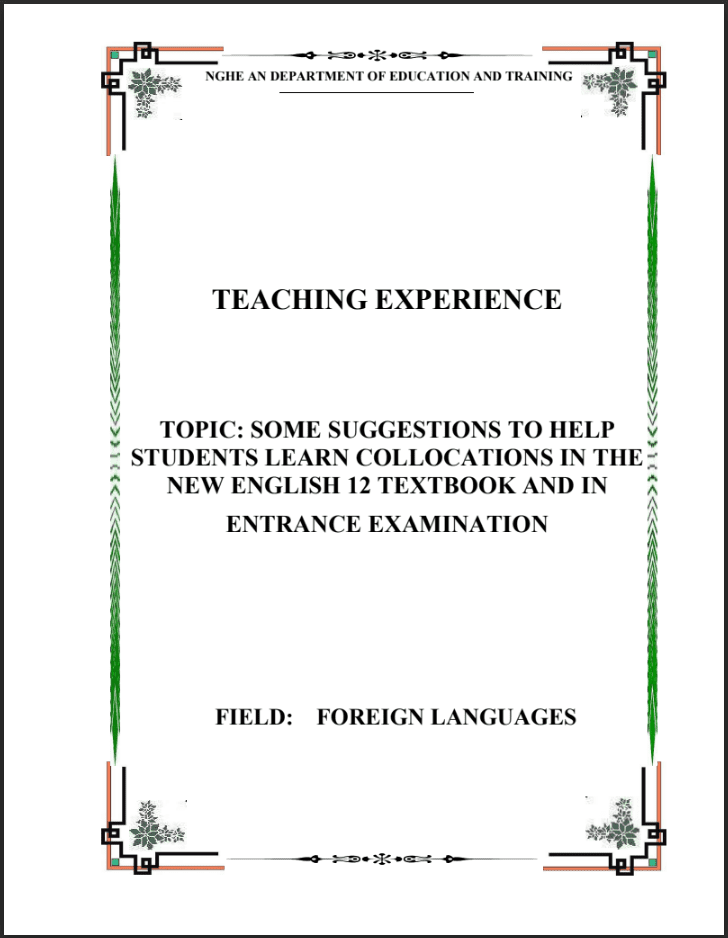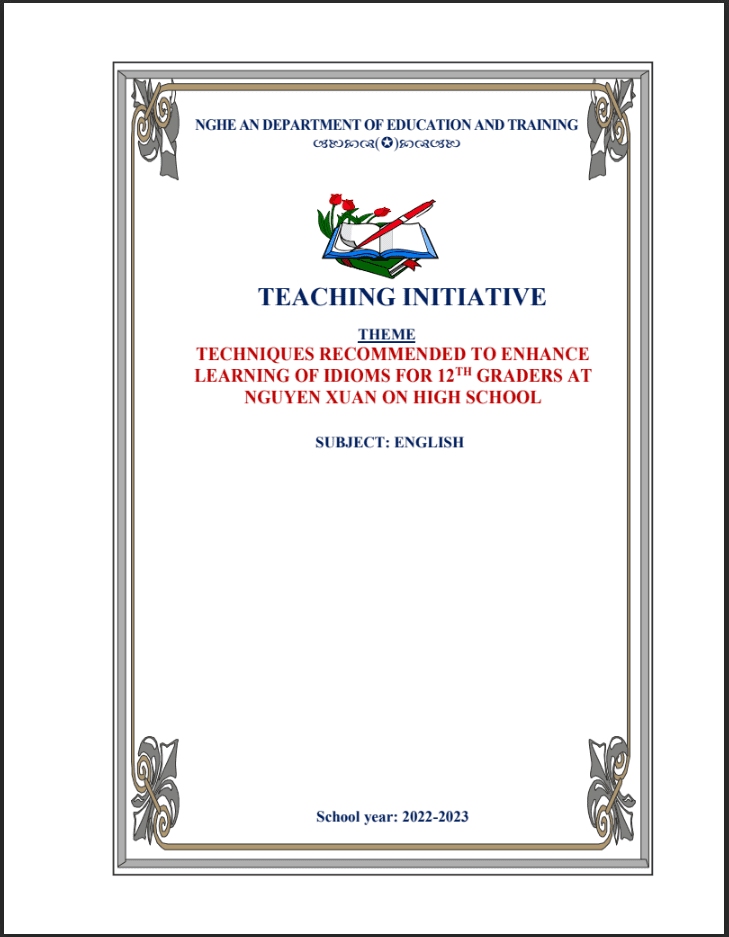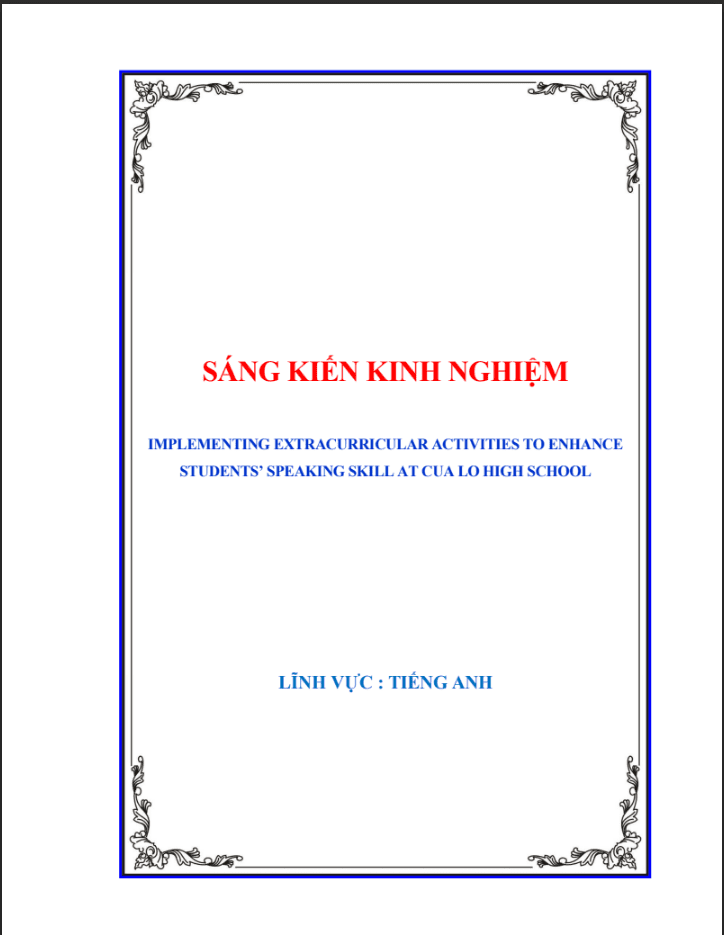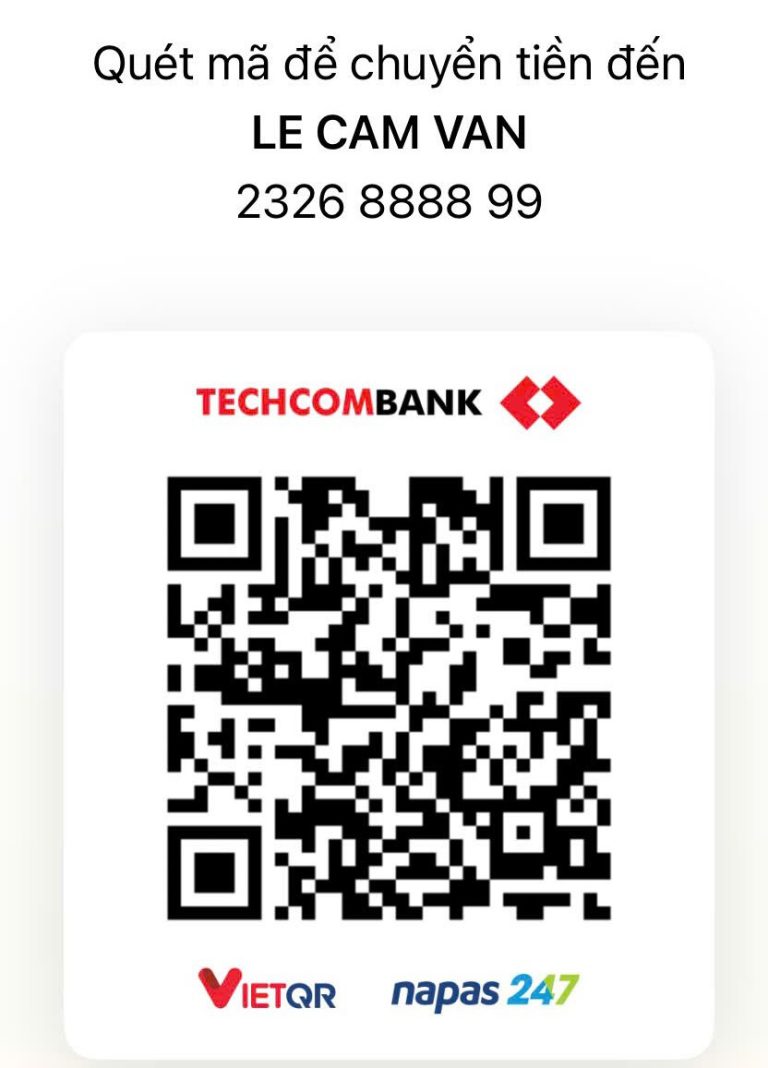SKKN Using Field Trips in Project-based Learning: Suggestions for EFL High School Teachers and Students
- Mã tài liệu: MP0112 Copy
| Môn: | Tiếng Anh |
| Lớp: | 12 |
| Bộ sách: | |
| Lượt xem: | 409 |
| Lượt tải: | 4 |
| Số trang: | |
| Tác giả: | Trần Thị Hồng Dung |
| Trình độ chuyên môn: | Cử nhân đại học |
| Đơn vị công tác: | THPT Hà Huy Tập |
| Năm viết: | 2022-2023 |
| Số trang: | |
| Tác giả: | Trần Thị Hồng Dung |
| Trình độ chuyên môn: | Cử nhân đại học |
| Đơn vị công tác: | THPT Hà Huy Tập |
| Năm viết: | 2022-2023 |
Sáng kiến kinh nghiệm “Using Field Trips in Project-based Learning: Suggestions for EFL High School Teachers and Students”triển khai gồm các biện pháp nổi bật sau:
Mô tả sản phẩm
PART 1: INTRODUCTION
1
.1. Rationale
A classroom without walls is entirely possible, and from what we know, it is
engaging students all the time, all across the country, in schools that use place-
based learning. It can start as a simple field trip with an idea to go out into the
world and experience something beyond the limitations of the classroom. Field trip
can be defined as a journey by a group of people to a place away from their normal
environment. When done for students, as it happens in several school systems, it is
known as school trip or school tour. According to DeWitt & Storksdieck (2008),
field trips provide opportunities for more affective learning including feelings and
attitudes. They also foster thinking skills, and they set up a substructure for future
learning by raising awareness. In addition, field trips, which aim to meet children’s
needs for direct and meaningful learning through research, problem-solving and
on-the-spot observation, have been found to support permanent, positive changes
in their knowledge, skills and attitudes. Such trips are among the most effective
means of providing children with opportunities to learn experientially about natural
environment and of magnifying the benefits of classroom education. At the same
time, this experience makes positive contributions to teachers regarding planning a
trip, coordination of students, time management, and collaboration with other
teachers. It is true that field trips are important for all development domains,
including social-emotional development, and if carefully prepared, can provide
rich experiences for students. For instance, whether students are visiting a local
library to learn more about their community’s history or visiting a museum to then
build their own micro-museum exhibits, project-based learning offers both teachers
and students a pathway for thinking outside the walls. By planning instruction in
correlation with experience, teachers can add authenticity and deeper layers of
meaning and engagement for students. Last but not least, with a trip that further
supports the community, the relationship between its residents and the schools
comes full circle. The matter of fact I mentioned above inspired me to choose the
topic “Using Field Trips in Project-based Learning: Suggestions for EFL High
School Teachers and Students”. Hopefully with this study, teachers can use it as
a source of reference in their teaching process.
1
.2. Aims of the study
The aims of the study are as follows:
–
–
–
To provide a brief review of field trip and project-based learning.
To observe the subject in its natural state and possibly collect samples
To suggest stages of field trips used in lessons to enhance EFL learners in
conducting projects
–
To explore the perception of teachers and learners to this approach in practice
1
1
.3. Scope of the study
The study pays a focus on the stages of field trips used for enhancing the project-
based learning at upper secondary level. Therefore, the study is conducted on the
subject of teachers and learners coming from some high schools in Vinh city. The
innovation of this study is that field trip is beneficial to be applied in the language
classroom as it presents more effective active project-based learning. It is true that
the modern approach in learning a language is that we need to build classroom
without walls. This may sound antithetic to our assumptions about traditional
schools because after all, a school is the place where students go to learn, and
classrooms are the place where teachers instruct students. However, when students
have been on a school field trip, then they have already experienced a classroom
without wall. Also, the learners’ experience is strengthened, project-based learning
is used more efficiently and more interactively, peer learning is enhanced, greater
control of content delivery, assimilation of knowledge can be observed and
students can learn on demand. In the light of project-based learning after the field
trips, students work in groups on a project which involves the use of the target
language, or put another way, hands-on projects that involve them in the entire
process of learning. This approach to learning can motivate students and create
positive communication and collaboration as they develop language, content, and
thinking skills.
1
.4. Organization of the study
The study will consist of the following parts:
Part 1: Introduction
This part consists of the rationale, aims, scope, and organization of the study.
Part 2: Content
This part mentions the theoretical background of the topic with an overview of
field trip as well as project-based learning. It also suggests some stages before,
while and after the field trips to evaluate students’ demonstration of skills and
knowledge, their performance and products as well as their attitude during learning
process. The application of these techniques is on the scale of units for students at
high school. Additionally, the perception of teachers and learners to this approach
will be discussed and identified. This part also shows a demonstration of using
field trips to support learners in completing projects in some periods of English
lessons. The data collected from the study will be discussed more in detail in this
part.
Part 3: Conclusion
In order to convey an overall conclusion of the study, Conclusion reviews the main
findings of the study. As for the implication of the study, some suggestions are
recommended to contribute to the success of assessing students’ outcomes.
2
PART 2: CONTENT
2
2
2
.1. Theoretical Background
.1.1. Overview of Field Trip
.1.1.1. Definitions of Field Trip
A field trip is considered as a didactical and pedagogical tool that in, a broad sense,
motivates the students, stimulates the interest in discovering something more about
a particular subject. It also enhances the strengthening of competences related to
themes already studied in classroom context. As a result, in the specific case of
second language learning (SLL), the field trip assumes a greater role in the way the
learning and teaching process is understood, especially when promoting the
correlation between the theory and the practice of a language learning, between the
school context and the real context. A single field trip can embrace and contain
several themes and, subsequently, several different curricular units, as it fuels the
discovery and the comprehension of the whole view of the reality (Monteiro, 2002)
[1]. Actually, the number of goals of a field trip are greater than the ones that can
be reached in classroom contexts considering similar periods of time. The teaching
inside the classroom in association with the field trips enables “learning to know,
combining general broad culture with the possibility of studying in depth a reduced
number of matters: learn to learn, to benefit from opportunities offered by lifelong
learning.” (UNESCO, 2010, p.31) [2].
It is believed that the field trip is a resource with a never-ending set of educational
potentials, as it can happen in different places, such as museums, historical sites,
exhibitions, companies, zoos, hospitals, government agencies, amusement parks,
fire stations, outdoor activities, among many others.
In any of the cases mentioned, the first objective is always to discover
something, to add more knowledge. This acquisition is then completed in a fun
ludic way. Furthermore, this type of activities not only strengthens interpersonal
relationships among the members of the participating group, but it also facilitates
the relations with the people of the place we are visiting. According to Montero,
2
002 at a certain point in the teaching – learning process, a field trip provides
students with experience and knowledge that can enhance their academic
performance. This type of field trip is seen as a source of enrichment as it provides
students with real experiences in the way of doing and acting. In other words, it
favors discovery and the broad comprehension of reality. There is no doubt that
this field trip offers a learning opportunity that enables the development of
different work techniques as well as socialization among learners. It is considered
as an active learning process as it allows the brain to learn better when students
build their own knowledge in direct interaction with the environment and cultural
of the local by consolidating the contents taught in the classroom. Field trips also
arouse curiosity in students and desire to expand cultural knowledge.
3
TÀI LIỆU LIÊN QUAN
- 7
- 105
- 1
- [product_views]
- 5
- 173
- 2
- [product_views]
- 4
- 165
- 3
- [product_views]
- 4
- 129
- 4
- [product_views]
100.000 ₫
- 6
- 434
- 5
- [product_views]
100.000 ₫
- 2
- 507
- 6
- [product_views]
100.000 ₫
- 9
- 546
- 7
- [product_views]
100.000 ₫
- 2
- 595
- 8
- [product_views]
100.000 ₫
- 0
- 538
- 9
- [product_views]
100.000 ₫
- 1
- 439
- 10
- [product_views]

